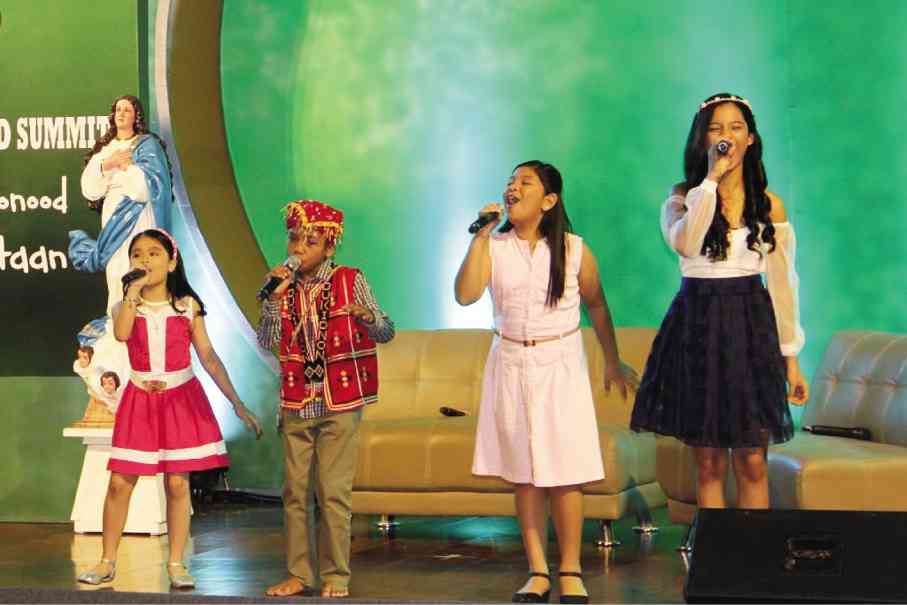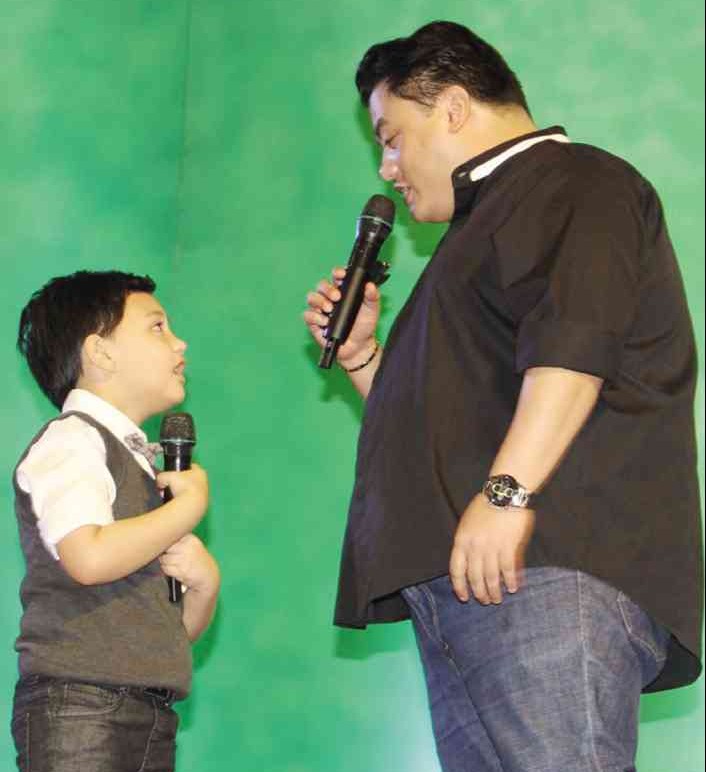Millennials’ media diet assessed

“THE VOICE Kids PH 2” finalists (from left) Esang de Torres, Reynan Dal-Anay, Elha Nympha and Sassa Dagdag
On its third year, the Family and Child Summit, organized by the Movie and Television Review and Classification Board (MTRCB), zeroed in on the concerns of—and the issues confronting—today’s youth in a media-saturated society.
“This year’s summit gathered nearly a thousand college students and various media practitioners,” recalled Eugenio “Toto” Villareal, MTRCB chair. “The summit’s goal was to motivate the youth, especially the so-called millennials, to be critical and empowered in the promotion of a wholesome media culture by engaging them in interactive discussions and discourse.”
As far as Villareal is concerned, the summit, which was held at the Maria Josefina Auditorium of St. Mary’s College in Quezon City on Nov. 14, “is not just an annual event, it is also a movement.”
“By bringing together leading voices from the industry, we were able to gain insights about current trends in media—its positive and negative effects on audiences, especially children,” related Villareal.
From the start, the summit has always endeavored to “empower parents and responsible adults,” to equip them with the tools and knowledge “for intelligent discernment of entertainment and media” products.
Filipino values
Through the summit, the MTRCB pursues its “role as mediator or conduit between media players and the audience. The board has served as ‘link’… with the objective of developing the movie and TV industry, but at the same time preserving Filipino values and culture.”
Sr. Consolata Manding of the Pauline Institute of Communication in Asia discussed the concept of “media diet.”
She enjoined young people to be more discerning in “consuming” media products—in the same way that they should be careful about the food they put in their bodies.
“We avoid food that isn’t healthy. In the same vein, we also need to be selective and not be overexposed to media for our own mental and spiritual well-being,” she said.
She pointed out that media has become a pervasive and persuasive force in modern society. “Media culture is the most dominant [influencer]… affecting our mind, will and emotions.”
She, however, noted that media can be harnessed for the common good. Her speech focused on “cultivating a sustainable relationship through effective media use, which upholds the dignity of every person… the pursuit of justice and harmony among people.”
Nicco de Jesus, president of Marketing and Opinion Research Society of the Philippines, lauded the summit, which can help “create an environment that develops the talents and creativity of the youth.”
Passive victims
Education Secretary Armin Luistro raised vital concerns. “Are we able to communicate to young people the values, stories and culture that need to be passed on from one generation to the next? Are we passive victims of television, absorbing everything, or are we critical audience members?” he asked.
Other speakers included economist Bernardo Villegas, Josa Marie Salazar of the National Council for Children’s Television, actress Yayo Aguila and daughter Nielli Martinez, TV host Danica Sotto-Pingris and her kids, and MTRCB board member Bibeth Orteza and son Rafa Siguion-Reyna.
Celebrities from the country’s top networks graced the summit, too.
“It (the summit) recognized the key role of the family as a strong force in the inculcation of Filipino values in media and through media,” Villareal said. He recounted that the youthful participants shared their ideas regarding the board’s goal of popularizing the concept of “Matalinong Panonood (Smart Viewing)” among audiences.
“The youth representatives asserted the need for thought-provoking programs,” he summed up.

